
Persian, also known by its endonym Farsi, is a Western Iranian language belonging to the Iranian branch of the Indo-Iranian subdivision of the Indo-European languages. Persian is a pluricentric language predominantly spoken and used officially within Iran, Afghanistan, and Tajikistan in three mutually intelligible standard varieties, namely Iranian Persian, Dari Persian and Tajiki Persian. It is also spoken natively in the Tajik variety by a significant population within Uzbekistan, as well as within other regions with a Persianate history in the cultural sphere of Greater Iran. It is written officially within Iran and Afghanistan in the Persian alphabet, a derivation of the Arabic script, and within Tajikistan in the Tajik alphabet, a derivation of the Cyrillic script.

Persepolis was the ceremonial capital of the Achaemenid Empire. It is situated in the plains of Marvdasht, encircled by southern Zagros mountains of the Iranian plateau. Modern day Shiraz is situated 60 kilometres (37 mi) southwest of the ruins of Persepolis. The earliest remains of Persepolis date back to 515 BC. It exemplifies the Achaemenid style of architecture. UNESCO declared the ruins of Persepolis a World Heritage Site in 1979.
William Baffin was an English navigator, explorer and cartographer. He is primarily known for his attempt to find a Northwest Passage from the Atlantic to the Pacific, during the course of which he was the first European to discover Baffin Bay situated between Canada and Greenland. He was also responsible for exceptional surveys of the Red Sea and Persian Gulf on behalf of the East India Company.
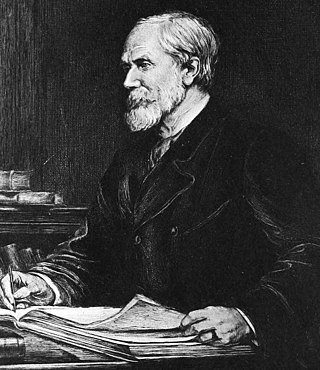
Colonel Sir Henry Yule was a Scottish Orientalist and geographer. He published many travel books, including translations of the work of Marco Polo and Mirabilia by the 14th-century Dominican Friar Jordanus. He was also the compiler of a dictionary of Anglo-Indian terms, the Hobson-Jobson, with Arthur Coke Burnell.
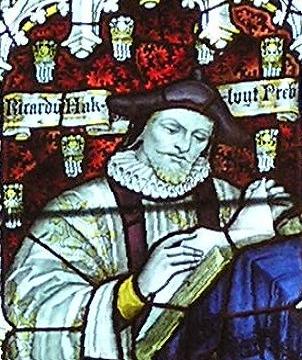
Richard Hakluyt was an English writer. He is known for promoting the English colonization of North America through his works, notably Divers Voyages Touching the Discoverie of America (1582) and The Principal Navigations, Voyages, Traffiques and Discoveries of the English Nation (1589–1600).

Samuel Purchas was an English Anglican cleric who published several volumes of reports by travellers to foreign countries.
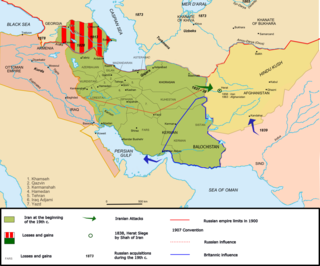
The Anglo-Russian Convention of 1907, or Convention between the United Kingdom and Russia relating to Persia, Afghanistan, and Tibet, was signed on August 31, 1907, in Saint Petersburg. It ended the longstanding rivalry in Central Asia and enabled the two countries to outflank the Germans, who were threatening to connect Berlin to Baghdad with a new railroad that could potentially align the Ottoman Empire with Imperial Germany.

Cyrus II of Persia, commonly known as Cyrus the Great, was the founder of the Achaemenid Empire, the first Persian empire. Under his rule, the empire embraced all of the previous civilized states of the ancient Near East, expanded vastly and eventually conquered most of Western Asia and much of Central Asia. Spanning from the Mediterranean Sea and Hellespont in the west to the Indus River in the east, the empire created by Cyrus was the largest the world had yet seen. At its maximum extent under his successors, the Achaemenid Empire stretched from parts of the Balkans and Southeast Europe proper in the west to the Indus Valley in the east.
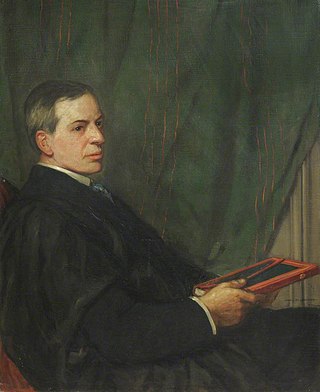
Edward Granville BrowneFBA was a British Iranologist. He published numerous articles and books, mainly in the areas of history and literature.

Jordanus, distinguished as Jordan of Severac or Jordan of Catalonia, was a Catalan Dominican missionary and explorer in Asia known for his Mirabilia Descripta describing the marvels of the East. He was the first bishop of the Roman Catholic Diocese of Quilon, the first Roman Catholic diocese in India.

Ramhormoz is the capital city of Ramhormoz County, Khuzestan Province, Iran. In ancient times it had been known as Samangan, having been established by the Sassanid king Hormizd I, although an Elamite tomb has been found as well. The historical territory of Ramshir is located in this area, only 3 kilometres (1.9 mi) away from the city.
Niccolò de' Conti was an Italian merchant, explorer, and writer. Born in Chioggia, he traveled to India and Southeast Asia, and possibly to Southern China, during the early 15th century. He was one of the sources used to create the 1450 Fra Mauro map, which indicated that there was a sea route from Europe around Africa to India.

The Hakluyt Society is a text publication society, founded in 1846 and based in London, England, which publishes scholarly editions of primary records of historic voyages, travels and other geographical material. In addition to its publishing role, the Society organises and participates in meetings, symposia and conferences relating to the history of geographical exploration and cultural encounter. It is a registered charity and a non-profitmaking institution administered by a voluntary team of council members and officers. Membership is open to all with an interest in its aims.
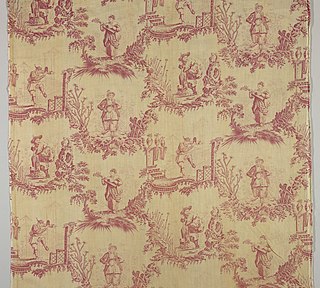
Percale is a closely woven plain-weave fabric often used for bed covers. Percale has a thread count of about 200 or higher and is noticeably tighter than the standard type of weave used for bedsheets. It has medium weight, is firm and smooth with no gloss, and warps and washes very well. It is made from both carded and combed yarns, and may be woven of various fibers, such as cotton, polyester, or various blends.
In the Western world, Persia was historically the common name used for Iran. On the Nowruz of 1935, Reza Shah officially asked foreign delegates to use the Persian term Iran, the endonym of the country, in formal correspondence. Subsequently, the common adjective for citizens of Iran changed from Persian to Iranian. In 1959, the government of Mohammad Reza Pahlavi, Reza Shah's son, announced that both "Persia" and "Iran" can be used interchangeably, in formal correspondence. However, the issue is still debated among Iranians.
Iranians in the United Kingdom consist of people of Iranian nationality who have settled in the United Kingdom, as well as British residents and citizens of Iranian heritage. Iranians in the United Kingdom are referred to by hyphenated terms such as British-Iranians, British-Persians, Iranian-Britons, or Persian-Britons. At the time of the 2011 census, 84,735 Iranian-born people resided in the UK. In 2017, the Office for National Statistics estimated the Iranian-born population to be 70,000.
Christopher Borough or Christopher Burrough, son of Steven Borough, was an English adventurer, navigator and translator and the chronicler of one of the most interesting journeys into Persia recorded in the pages of Richard Hakluyt. He was fluent in Russian.

Arthur Cecil Edwards was a dealer in and authority on Persian carpets. He was managing director of the Oriental Carpet Manufacturers based in Turkey.

Tara Grammy is an Iranian-Canadian actress and playwright.
Terence Croft Mitchell was a British archaeologist, scholar and curator. He was Keeper of Western Asiatic Antiquities at the British Museum from 1985 to 1989. He specialised in West Semitic languages, Near Eastern archaeology, and also took an interest in Biblical matters from an evangelical Christian position.













